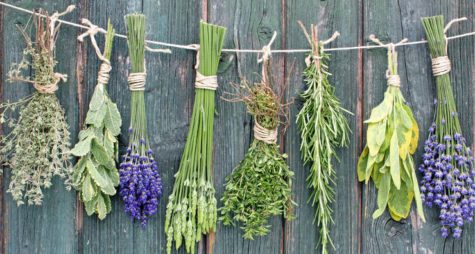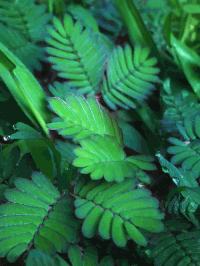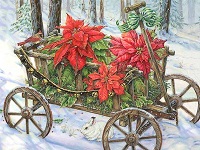Glossary of Herbal Actions
Herbal actions describe the observable effects of herbs in the body. This is a glossary of the terms used to describe the actions of the herbs featured here in the Encyclopedia of Herbology. As the website grows, this list will lengthen. Each action is tagged to the individual herbs, so if you are looking for something specific, an Astringent for example, the link will bring up all the Astringent herbs.
- Abortifacient: An herb which will cause a miscarriage, or that induces abortion.
- Alteratives: Consist of those herbs which unmistakably alter morbid disease processes to healthy processes.
- Analgesics – Pain relievers. Herbs that relieve pain without inducing unconsciousness.
- Anaphrodisiacs – Herbs used to allay or decrease sexual feelings and desires.
- Anesthetic – Herbs that produce anesthesia or unconsciousness.
- Anodyne – Reduces the sensitivity of the nerves.
- Antacids – Used to neutralize the acidity of the stomach and intestines.
- Anthelmintics – Herbs that destroy intestinal worms.
- Antianemic – Increases the number of red blood cells or the amount of hemoglobin (an oxygen-carrying protein) in the blood, deficiencies of which characterize the disorder known as anemia.
- Antiarthritics – Herbs used for the relief of gout and arthritis.
- Antiasthmatic – Herbs used for the relief of asthma.
- Antibacterial – An agent that interferes with the growth and reproduction of bacteria
- Anticatarrhal – Anticatarrhal herbs are herbs which help dissolve and eliminate, as well prevent the formation of mucus and inflammation of the mucus membrane. It is a symptom usually associated with the common cold and chesty coughs, but can also be found in patients with infections of the adenoids, middle ear, sinus or tonsils.
- Antidepressive – An herb used to treat depression and raise the spirits.
- Antidiabetic – Useful in the treatment of diabetes.
- Antiemetic – An antiemetic is an herb that is effective against vomiting and nausea. Antiemetics are typically used to treat motion sickness and the side effects of opioid analgesics, general anaesthetics, and chemotherapy directed against cancer.
- Antifungal – Used to treat fungal infections of the skin, scalp and nails.
- Anti-inflammatory – Reduces inflammation.
- Antilithic – Acting against the formation of calculi, such as kidney stones.
- Antimicrobial – An agent that kills microorganisms or stops their growth.
- Antioxidant – An herb that reduces damage due to oxygen, such as that caused by free radicals.
- Antiperiodics – Used for the reduction of body temperature in fevers.
- Antirheumatic – Refers to herbs used in the therapy of inflammatory arthritis.
- Antiseptic – Antiseptic herbs act to prevent decay or putrefaction. They contain a substance that inhibits the growth and development of microorganisms without necessarily destroying them.
- Antispasmodics – Herbs that relieve “fits” and “spasms.”
- Antiviral – An agent that kills a virus or that suppresses its ability to replicate and, hence, inhibits its capability to multiply and reproduce.
- Aperient – Laxative.
- Aphrodisiacs – Herbs that increase sexual desire and power.
- Appetizer – Increases the appetite.
- Aromatic – Herbs often with volatile essential oils that present strong aromas. Most often used to stimulate the digestive system, reproductive system, and disinfect the respiratory tract, or help expectorate the lungs. Some aromatics are also excreted through the urinary tract or the skin.
- Astringent – An astringent acts to contract and tighten, or constrict body tissues, usually locally after topical medicinal application, similar to styptic. This constricting action can help eliminate secretions and hemorrhaging. Astringent foods cause the mouth to feel dry and constricted.
- Biofilm disrupter – When certain bacteria and other microorganisms infect tissue, they can form a cooperative structure called a biofilm. This makes it more difficult for your immune system, antimicrobial herbs, and antibiotic drugs to fight the infection.
- Bitters – As bitter compounds touch your taste buds on your tongue they send messages to your brain – causing an increase in many digestive secretions including saliva, hydrochloric acid, pepsinogen and hormones that stimulate the gall bladder and pancreas. This, of course, leads to better and more efficient digestion down the digestive tract.
- Cardiac Depressants – Herbs that lower the heart’s action.
- Cardiac Stimulants – Herbs that increase the heart’s action.
- Carminative – Herbs containing a volatile oil used to excite intestinal peristalsis and to produce an expulsion of gas. Good for cases of flatulance.
- Cholagogue – Promotes the flow of bile.
- Circulatory Stimulant – Herbs that increase circulation.
- Convulsant – Herbs that can cause convulsions, usually this happens as a result of an overdose.
- Demulcent – The word “demulcent” comes from the Latin verb, “demulcere” meaning to soothe or “to caress.” Dumulcent herbs work internally to help soothe and protect the mucous membranes in the body, they have a direct action on the lining of the intestines, soothing and reducing irritation by direct contact. A soothing, usually oily substance is used to relieve pain in inflamed or irritated mucous membranes and protects mucous membrane from further irritation.
- Deobstruent – An herb which removes obstructions in the body by aiding the opening of ducts.
- Deoderant – Substances that destroy foul odors.
- Diaphoretic – Diaphoretic herbs help the body dispel fever and chills, cool the skin and eliminate toxins. Diaphoretic herbs induce involuntary perspiration that helps to reduce fever, promote circulation, relieve muscle tension, aching joints, and inflammatory skin conditions.
- Diffusive – Stimulates movement of blood fro the body’s center to the surface and periphery.
- Digestants – Ferments and acids which aid in the solution and absorption of foods.
- Disinfectants – Herbs which destroy the noxious properties of decaying organic matter. Germ killers.
- Diuretic – Diuretics used to increase the flow of urine to relieve water retention. A diuretic provides a means of forced diuresis which elevates the rate of urination. While natural diuretics remove fluids from the body, there is a possibility that other important vitamins and minerals may be flushed out as well.
- Drastics – Herbs which case much irritation.
- Emetic – Herbs which produce vomiting.
- Emmenagogue – Herb which stimulate menstruation.
- Emollient – Emollient herbs include herbs used externally to help soften, soothe and protect the skin. Much like demulcents (used internally), emollients break up hardness, dryness, and reatore the moisture barrier, repair damaged skin and restore the skin’s natural softness.
- Errhines – Herbs which promote nasal secretions.
- Exhilarant – Lifts spirits and elevates mood.
- Expectorant – Expectorants help the body expel mucus from the lungs, nose and throat. Expectorants are often used to treat coughing and related conditions.
- Febrifuge – Helps to bring down a fever.
- Galactagogues – Herbs which increase the secretion of milk. Useful for lactating women.
- Grounding – Centers the mind in the body and settles restless thoughts.
- Hepatic – Hepatic herbs help to strengthen, detoxify, tone, increase bile flow and promote normal liver function.
- Hepatoprotective – Restores healthy liver function.
- Hydrogogues – Purgatives which cause large watery discharges, or diarrhea.
- Hypnotics – Herbs which cause sleep.
- Hypoglycemic – Lowers blood sugar levels.
- Hypotensive – Hypotensive herbs cause low blood pressure, similar to anti-hypertensive which is an agent that lowers blood pressure. Their actions may involve effects on the cardiac conduction system.
- Immunomodulator – Elevates immune system activity if it is deficient, but reduces excessive activity, as occurs with autoimmunity.
- Inulin – A prebiotic fiber found in dandelion root, elecampane, and other herbs.
- Laxative – A laxatives (or purgatives) when consumed either induce bowel movements or loosens the stool. Laxatives are generally taken when a person has constipation.
- Litholitic – Breaks up urinary stones.
- Lymphatic – Stimulates the movement of lymph and disperses stagnation.
- Mydriatics – Herbs which cause dilation of the pupils.
- Narcotics – Powerful anodyne hypnotics. Usually habit forming.
- Nervine – An herb used to calm the nerves.
- Nutrient – The words nutrient and nourish both come from the Latin word nūtrīre, “to feed, nurse, support, preserve.” Nutrient Dense Herbs. Nutritive herbs are a class of plants that are rich in vitamins and minerals; they provide a source of easily assimilated nutrients.
- Pectoral – Herbs that have a general strengthening and healing effect on the respiratory system.
- Purgative – Tending to cleanse or purge, especially causing evacuation of the bowels.
- Refrigerant – Having a cooling effect on the body.
- Rubefacient – A substance for topical application that produces redness of the skin, e.g. by causing dilation of the capillaries and an increase in blood circulation.
- Sedatives – Herbs with a calming effect, and which lower functional activity.
- Sialagogues – Herbs which excite the salivary glands.
- Stimulant – These herbs help to increase the function of the body energy levels, circulation and help eliminate toxins. Stimulant herbs can induce temporary improvements in either mental or physical function or both, like enhanced alertness, awareness, wakefulness, endurance, productivity, and motivation, increased arousal, locomotion, heart rate, and blood pressure.
- Stomachics – Stimulants to the stomach.
- Styptics – Herbs which stop hemorrhage powerfully.
- Taenicides – Herbs which kill tape worms.
- Tonic – These herbs are nutritive and can be taken regularly to help strengthen a system without harmful side-effects.
- Trophorestorative – Herb that maintains or restores healthy function and increases vitality. (The technical term for a tonic.)
- Vasodilator – Vasodilation refers to the widening of blood vessels. It results from relaxation of smooth muscle cells within the vessel walls, in particular in the large veins, large arteries, and smaller arterioles. The process is the opposite of vasoconstriction, which is the narrowing of blood vessels.
- Vermicides – Herbs which expel intestinal worms.
- Vulnerary – Wound healing is an intricate process in which the skin repairs itself after injury. Herbs with vulnerary properties are used to help promote the healing of wounds, cuts and abrasions.
Explore The Content
Rennie Luttrull: queen-annes-lace-seeds
Rosanna: Spignel aka Bald Money
Annamarie Squatrito: Fumitory
EILEEN Klinghagen: Pumpkin
Mahmudul Hasan: Celery


